Arms Trade Treaty
We owe it to those millions – often the most vulnerable in society – whose lives have been overshadowed by the irresponsible and illicit international trade in arms.— Ambassador Peter Woolcott, President of the Final Conference on the ATT
The global trade in conventional arms, estimated at over US$70 billion annually, now operates under international standards established by the Arms Trade Treaty (ATT). Adopted by the UN General Assembly on 2 April 2013, the ATT is the first legally binding treaty to regulate the international trade of conventional weapons, aiming to prevent their misuse in war crimes, human rights abuses, and illegal activities. The Treaty opened for signature on 3 June 2013 and reached its 50th ratification on 25 September 2014, triggering its entry into force on 24 December 2014.
| Basic Facts | ||
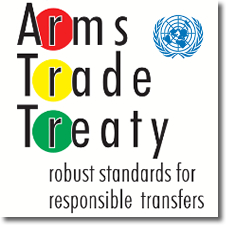 |
Number of Signatory States | 130 |
| Number of Asia-Pacific Signatory States | 17 | |
| Number of States Parties | 116 | |
| Number of Asia-Pacific States Parties | 10 | |
| General Assembly vote to adopt the treaty: 154-3-23 | ||
UNRCPD and the Arms Trade Treaty
The United Nations Regional Centre for Peace and Disarmament in Asia and the Pacific (UNRCPD) actively supports the implementation and universalization of the ATT within the region. By collaborating with member states, UNRCPD facilitates capacity-building initiatives, legal assistance, and awareness-raising activities to promote the Treaty’s objectives.
UNRCPD together with the Government of the Kingdom of Cambodia organized a Regional Legal Assistance Workshop on the Arms Trade Treaty in Siem Reap, Cambodia, on 18-19 November 2014. The purpose of the two-day event was to provide States with legal expertise with a view to facilitate the process of ratification and accession to the ATT, which has then entered into force on 24 December, 2014.
The UNRCPD-facilitated Second Asia Regional Meeting to Facilitate Dialogue on the Arms Trade Treaty, was held in Manila, the Philippines on 26-27 November 2013, and aimed to identify among member states priority areas, common challenges, as well as tools for assistance for countries in their efforts to move towards signing and ratifying the Treaty. Over 35 senior-level representatives from member state governments participated in the meeting. External experts and United Nations officials were also invited to provide insight and updates on key topics under discussion. See photos from the Second Asia Regional Meeting.
The First Asia Regional Meeting to Facilitate Dialogue on the Arms Trade Treaty was held in Kuala Lumpur, Malaysia on 26-27 February 2013 in advance of the Final United Nations Conference on the Arms Trade Treaty. Hosted by the Government of Malaysia, the purpose of the two-day meeting was to create a forum for regional dialogue and to share views in advance of the upcoming negotiations. The meeting represented an opportunity for senior officials involved in the negotiations to come together to exchange ideas and discuss the Treaty with their colleagues from countries in the region. The meeting laid the foundation, following adoption of the Arms Trade Treaty (A/RES/68/31) in the General Assembly by a margin of 154-3-23 on 2 April 2013, for a series of follow-up meetings throughout 2013-2014, starting with the Second Asia Regional Meeting, facilitated by UNRCPD and hosted by Asian-Pacific member states.
Read a letter from former High Representative for Disarmament Affairs Ms. Angela Kane to member states.
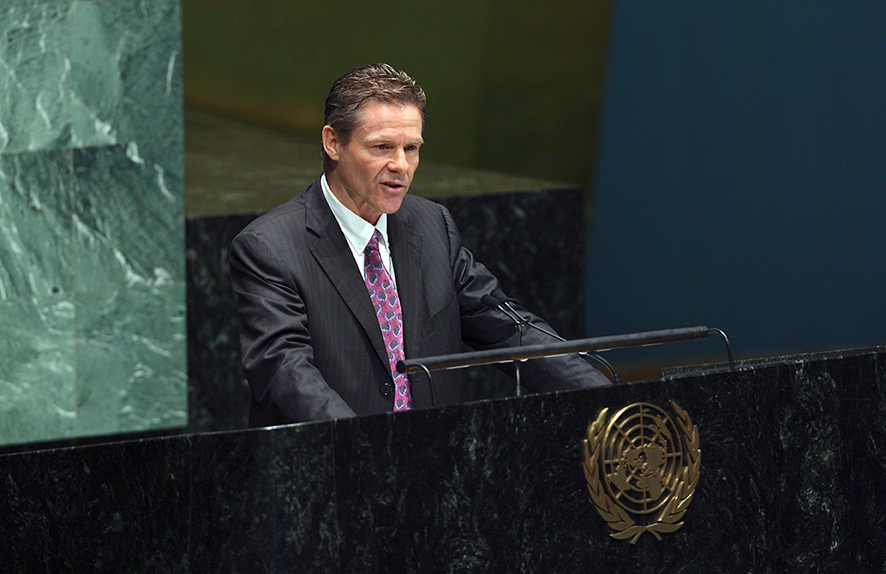
United Nations Trust Facility Supporting Cooperation on Arms Regulation (UNSCAR)
Provisions in the ATT set up a voluntary trust fund to be established by States Parties for the purpose of assisting states to implement the ATT. In anticipation, the United Nations, in close cooperation with a growing number of States, has launched a trust facility to kick-start advocacy, universalization and implementation activities. Learn more about the United Nations Trust Facility Supporting Cooperation on Arms Regulation (UNSCAR).
Featured Publications
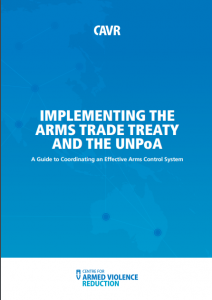
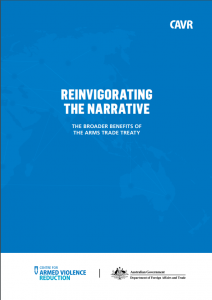
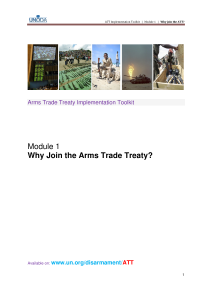
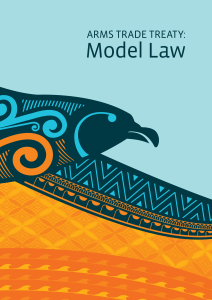
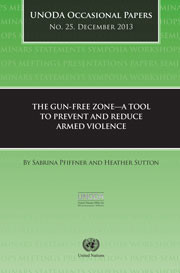
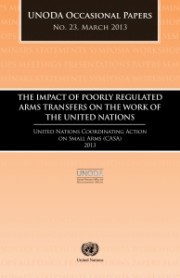
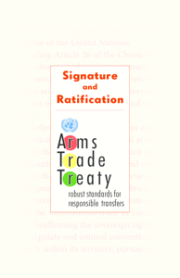
General Assembly Resolutions
- The Arms Trade Treaty (2015) — A/RES/70/58
- The Arms Trade Treaty (2014) — A/RES/69/49
- The Arms Trade Treaty (2013) — A/RES/67/234 B
- The Arms Trade Treaty (2012) — A/RES/67/234 A
- The Arms Trade Treaty (2011) — A/C.1/66/L.50
- The Arms Trade Treaty (2009) — A/RES/64/48
- Towards an Arms Trade Treaty (2008) — A/RES/63/240
- Towards an Arms Trade Treaty (2006) — A/RES/61/89

